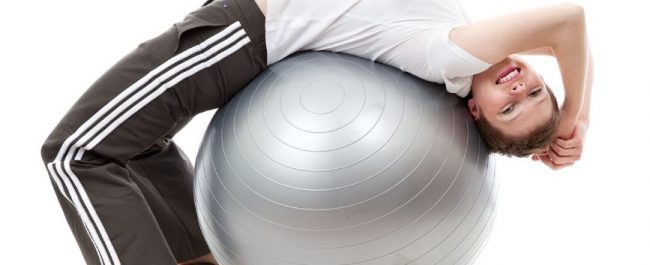Yes, Exercise Provides Oral Health Benefits!
It’s common knowledge that exercise has many benefits for your body and health. Maintaining a healthy exercise routine has been shown to improve moods, increase energy and improve overall health. But along with all these benefits did you know exercise is also good for your teeth and gums? Turns out there are links between how much we exercise and the health of our teeth! Read on to learn more about these links and find out a couple areas that call for some extra attention!
Regular Exercise Decreases Chances of Gum Disease
Periodontal disease is also known as gum disease and occurs when bacteria in the mouth inflames your gums. When plaque forms on your teeth and isn’t removed regularly with brushing and flossing your gums will become inflamed and irritated, which causes them to pull back from your teeth and form spaces where bacteria can collect. If this isn’t treated it can turn into a serious and painful issue. Gum disease can also mean an increase in other problems like bad breath, swollen & painful gums, tooth loss, some cancers, and even heart disease or stroke.
A survey by the Third National Health and Nutrition Examination Survey (NHANES III) found that those who exercise 5 times a week at a moderate level or three times a week at high intensity were at a lower risk for experiencing gum disease.
Another study that was published in the Journal of Dentistry followed adults for 10 years or more years found that adults who exercised regularly were up to 54% less likely to develop periodontal disease.
Potential Oral Health Concerns with Exercise
While there are clear benefits to exercising on oral health, there are two main concerns to be aware of so you can do everything you can to prevent possible problems in your mouth.
Sports Drinks
Sports drinks do have their benefits but they’re also packed with ingredients that can damage your teeth. While they are a good option to help your body recover from exercise, the significant volume of sugar and acid means that the potential for decay might not be worth the trade.
Mouth Breathing
When we exercise we tend to breathe through our mouths, which helps to get more air into our lungs. But it also reduces the production of saliva and makes the mouth dry. A dry mouth is the ideal place for bacteria to grow and thrive which can mean cavities and tooth decay for your teeth.
How you can help your teeth stay healthy
There are a few steps you can take to keep your teeth in top shape while maintaining a fitness regime:
Brush and floss regularly – Brushing and flossing are part of a healthy oral care regime, but they’re especially important practices after a workout. Giving your teeth a good cleaning helps to re-hydrate the inside of your mouth and remove any possible food particles from your after-workout snack.
Have a mint or some gum – Chewing a piece of gum or eating a mint after a workout helps to stimulate your saliva production to help keep the bacteria-fueling dry mouth at bay. It also helps to wash off any other sugars sticking to your teeth.
Drink lots of fluids – Water helps rinse your mouth of bacteria and sugars, as well as keeps your body hydrated.
Following a good dental regimen is an important part of maintaining good oral health, but there are also other steps you can take to help improve your mouth health. Exercising can help you avoid risk factors and keep your teeth and body healthy. Add in some moderate exercise 3-5 times per week to see some benefits in the health of your teeth and to reduce your chances of experiencing gum disease. And be sure to continue visiting your dentist for regular check ups to ensure your teeth are in top shape.


